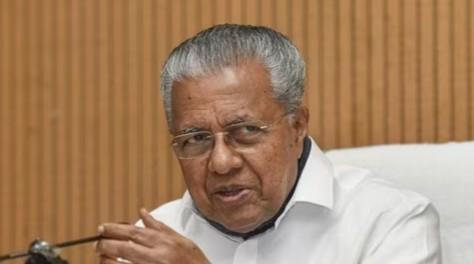
Attack on Federalism: Kerala CM on Bills to Remove Jailed PM, CMs
The recent developments in the Indian political landscape have sparked widespread concern among citizens, politicians, and constitutional experts alike. The latest addition to this growing list of controversies is the Constitution (130th Amendment) Bill, 2025, which was tabled in the Parliament on [Date]. The bill, if passed, will empower the central government to remove the Prime Minister, Chief Ministers, and Ministers who have been arrested or detained for at least 30 days from their positions.
Kerala Chief Minister Pinarayi Vijayan has been vocal about his opposition to this bill, terming it a “blatant attack on federalism and the rights of states.” In an interview, Vijayan highlighted the potential dangers of this bill, stating that it seeks to “destabilize non-BJP governments by weaponizing central agencies and jailing opponents on false charges.”
The Constitution (130th Amendment) Bill, 2025, is the latest in a series of moves by the central government to erode the powers of state governments and concentrate authority in New Delhi. This bill, coupled with other recent developments, such as the passage of the Citizenship (Amendment) Act, 2019, and the National Register of Citizens (NRC), has raised concerns about the erosion of federalism in India.
At the heart of the controversy surrounding this bill is the question of what constitutes a “justifiable” reason for the removal of a Prime Minister, Chief Minister, or Minister. The bill provides no clear guidelines on this issue, leaving it to the discretion of the central government to decide when a leader has lost the trust of the people. This lack of clarity has sparked concerns about the potential for political vendetta and the misuse of power by the central government.
Vijayan’s concerns about the potential for political vendetta are well-founded. In recent years, there have been several instances of political leaders being arrested or detained on trumped-up charges. The most notable example is that of former Jammu and Kashmir Chief Minister Farooq Abdullah, who was detained under the Public Safety Act (PSA) in 2019. Abdullah’s detention was widely seen as a political move to silence him and curb his political activities.
The Constitution (130th Amendment) Bill, 2025, has also raised concerns about the erosion of the separation of powers between the legislature, executive, and judiciary. The bill seeks to empower the central government to remove a Prime Minister, Chief Minister, or Minister who has been convicted of a crime, without providing any mechanism for appeal or review. This has sparked concerns about the potential for abuse of power and the erosion of the checks and balances that are essential to a healthy democracy.
The bill has also been criticized for its potential impact on the functioning of state governments. If passed, the bill could lead to a situation where state governments are unable to function effectively, as key leaders are removed from office. This could have far-reaching consequences for the delivery of public services, the economy, and the overall well-being of citizens.
In conclusion, the Constitution (130th Amendment) Bill, 2025, is a threat to federalism and the rights of states. It is essential that the central government reconsider this bill and engage in a more consultative and transparent process to address the concerns of state governments and citizens. The bill, as it stands, is a recipe for political instability and abuse of power.






